“Will you accept the result of this election?” The entire 2016 presidential campaign was encapsulated in this one question by the moderator, Chris Wallace, to Donald Trump. Trump’s answer, “I’ll look at it at the time,” sent shivers throughout America. From the founding of the nation, what made America the “shining city on the hill” was the fact that it achieved what no other nation in the world had at that time managed—the peaceful transition of power. Only once, in 1860 when the nation descended into civil war, did the nation not change power peacefully. This is why Trump’s debate answer was so chilling. It ran counter to everything we have stood for—Democrat or Republican, liberal or conservative—for centuries. As Chris Wallace said, “Peaceful transition of power is a tradition in this country.”
This was a remarkable statement from an American presidential candidate—one that had been refuted earlier by his vice presidential running mate, by his campaign manager, and even by his daughter. And yet, he repeated it. And therein lies the core problem with the Trump candidacy.
Let’s face it: there is a good case to be made against globalization, against the trade agreements that have left so many behind and against an economy that has increased inequality for so many. There’s an argument to be made about a foreign policy that contributed to the chaos in the Middle East and in Syria. There is a case to be made that the Affordable Care Act has some big problems.
In the hands of a different Republican this would have been a much closer election.
But from the beginning Donald Trump’s message and the valid concerns of his many supporters have been muted by a personality that is fundamentally at odds with the essence of the American experience. Trump is an authoritarian strongman in a democracy designed explicitly to curtail strongmen. From the very beginning it has been clear that Trump had no respect for the rule of law and for the fact that the American president operates in a system of shared power. No wonder Hillary Clinton called him “… the most dangerous person to run for President in the history of America.”
Most of us have focused on his repugnant tendency to demean and mimic women, handicapped people, and other groups who are essentially powerless. In the lead up to this debate the country was mesmerized by a succession of women going public with the fact that they’d been groped by him. But we’ve spent less time on the fact that he also demeans and threatens people who hold important positions in the American government—such as the Speaker of the House of Representatives and the generals in the military. Why would anyone do this? Doesn’t he know that as president he needs at least his party in Congress to help him out?
In this last debate he spent precious moments defending Vladimir Putin, the Russian dictator—as he has in the past. There are many theories about why Trump is so obsessed with Putin—one of them is that he has raised lots of money from Russian oligarchs and owes them lots of money. If any of those hypotheses were true they would be disturbing, but what is more disturbing is the very real possibility that he is obsessed with Putin because he wants to be a leader like Putin.
As this most extraordinary campaign comes to a close, Americans have been deprived of the debate they should have been having; about trade, about the economy, about our place in the world. Because, in the end, they will be forced to reject someone who is an affront to the very democracy he seeks to lead.
Elaine C. Kamarck is a Senior Fellow at the Brookings Institution and author of Why Presidents Fail And How They Can Succeed Again. She is a superdelegate to the Democratic convention.
The Brookings Institution is committed to quality, independence, and impact.
We are supported by a diverse array of funders. In line with our values and policies, each Brookings publication represents the sole views of its author(s).

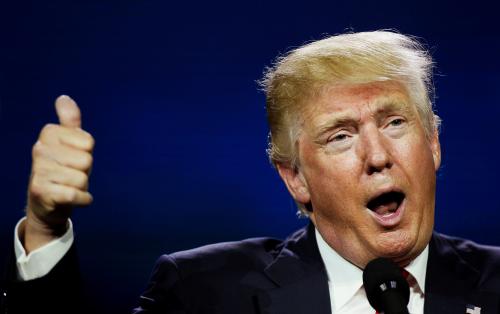
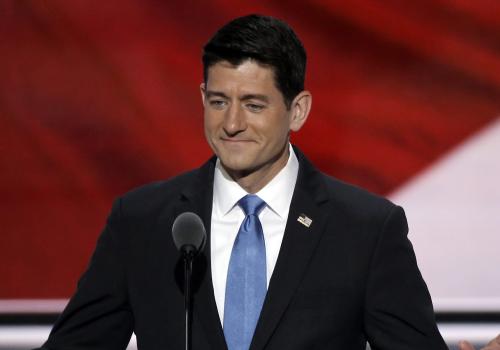
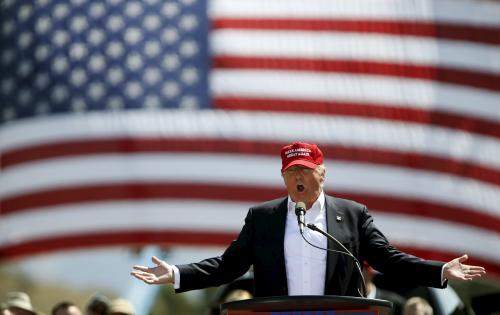
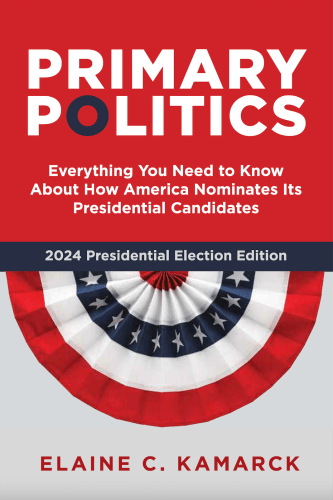
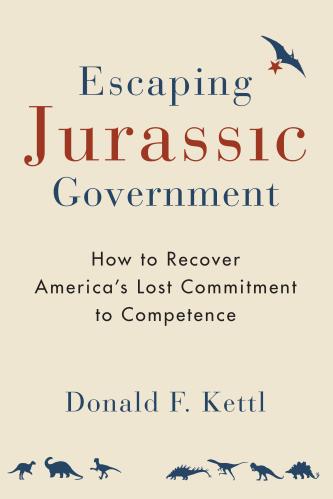
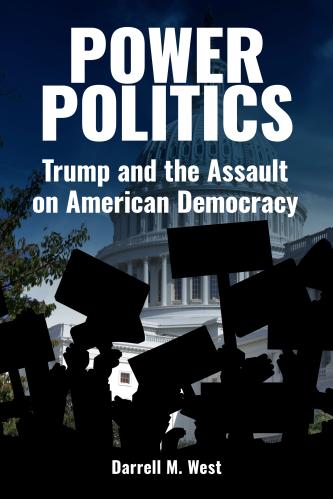



Commentary
The third presidential debate: The strongman obscures the issues
October 19, 2016